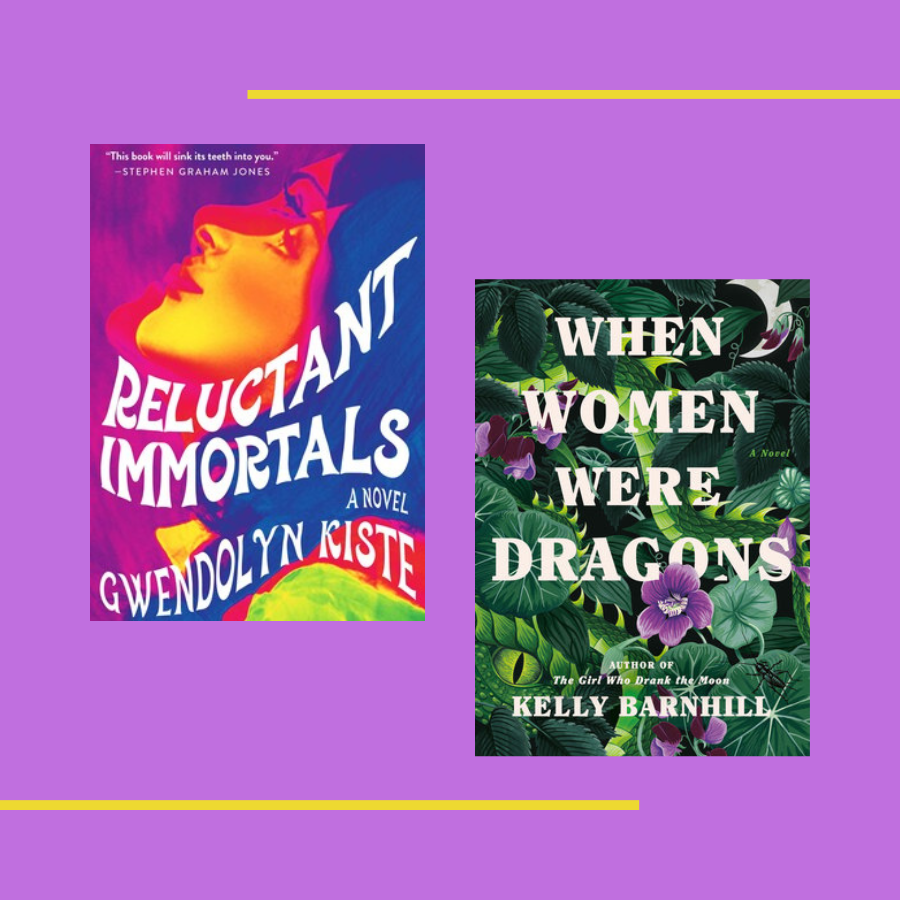Near the end of the Amber Heard and Johnny Depp defamation trial, I started reading Reluctant Immortals by Gwendolyn Kiste. It tells the story of Lucy and Bertha, victims of two iconic men: Dracula and Mr. Rochester. Lucy and Bertha are living in Los Angeles in the 1960s, in a world in which their abusers are romanticized in literature and film. The book itself is about the cycle of abuse, and also about suppressed grief and rage.
It’s a compelling read, and a fun one despite its themes. I was eager to annotate it from the start, with page flags and underlines and notes in the margin like, “yet another victim,” “the cycle of abuse,” and “truly, fuck men.”
But this summer was rough, and a book I might have read in just a few days last year took me over a month to read. I was devastated by the increasing vitriol against Amber Heard and fearful for the future of survivors by the trial’s end.
By the time I finished reading, the Supreme Court had overturned Roe v. Wade.
Shortly after that, I started When Women Were Dragons by Kelly Barnhill, an absolutely wonderful book about the Mass Dragoning of 1955, when 300,000 women spontaneously transformed into dragons. It touches on collective grief and trauma in a way that moved me and felt particularly poignant for this time we’re living in.
I was struck by the women in both of these books — the way they experienced anger, rage, pleasure, and joy. I had a feeling there was something in these books for me to explore, something that might provide insight around my own current state of mind. Because, while people all around me were mobilizing, I felt frozen. I could not get past the weight of my own emotions and into the point of action.
Even writing this piece became a challenge. Each time I sat down to write, I was overcome by grief, fear, anger, and frustration. The words would not come.
Grief and Rage in Fiction
One of the themes in Reluctant Immortals is abuse, specifically intimate partner violence: the lingering effects of abuse, the way it changes you, and how it impacts your future relationships. The book’s protagonists are not reluctant just because they’re ready to live a normal life, one marked by the passage of time and reminders of how close we are to death. Rather, their reluctance over their immortality comes as a direct result of their abuse. Dracula made Lucy immortal when he turned her into a vampire as another way to control her. Rochester made Bertha immortal when he locked her up in an attic with some strange, gross substance that freaked me out every time it was mentioned in the book.
There is a lot for Lucy and Bertha to be angry about. But when they fully release their anger, when they unleash what they consider to be their monstrous side, they feel pleasure, ecstasy, and joy. It feels good to feel rage.
The same is true in When Women Were Dragons. We’re told that after turning into dragons, some of these women attacked their cheating husbands. We assume (rightly, I think) that rage and anger are part of what fueled their transformation. But when we hear from them, it’s clear that their decision to transition, the feeling of becoming a dragon, is also a pleasurable one. It’s described at one point as “fierce joy.”
Grief and Rage in Reality
Ultimately, these stories remind me that there is value in feeling all of our feelings, including rage, fear, anger, and grief. That there is nothing wrong with sitting in those feelings for longer than we think is okay, for longer than we’ve been trained by society. I’m comforted by the reminder that sometimes it’s okay to pause before taking action.
I don’t want to swallow my grief. I don’t want to fight when I feel too depleted to even make myself a meal. I don’t want to pretend that this isn’t maddening.
It’s true that if we all sit in that space and never move past it, if we stay stuck in inaction, it’s possible we’ll be stuck in this dystopic reality forever.
But this is going to be a long fight. And there are enough of us, I think, to allow for each of us to move through our feelings in our own time. To deal with the enormity of this moment in a way that is honoring and healthy. In a way that allows our rage to feel good, strengthened by our grief, and to be spurred into action from that place.
Because fully-resourced and self-expressed is how we’ll get there — somewhere better — together.


